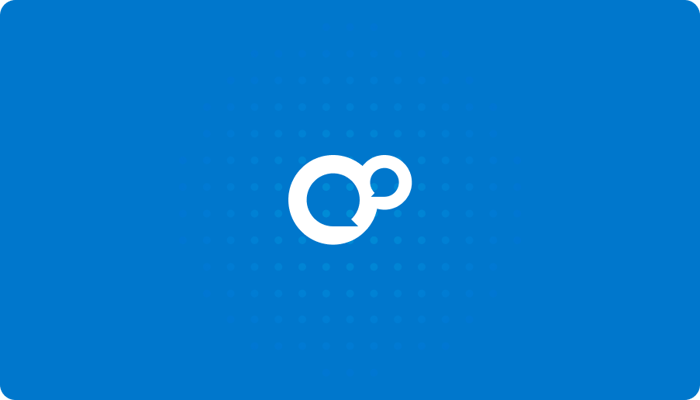Online learning used to be suspicious. When I did my Masters degree online at the University of Liverpool (UK) in 2006, I was always met with a slight look of disbelief when I said the whole program was taught ‘online’.
This was just after the age of ‘certificate mills’; fake universities pumping out certificates for non-existent courses. Was my online course real? Was it easier than doing things in the classroom? Was it less rigorous?
Online learning used to be like online dating: weird. We forget how far we’ve come and how fast. Today US companies spend $160bn per year on training and development alone. Elearning is the fastest growing segment of this spending; an average increase of 23% year-on-year. Online learning is a phenomenon.
But it remains expensive. On average, it’s said that to develop 1 hour of ‘elearning’ content costs about $30,000. If you were to apply that back to my online degree, it would mean spending $4.5m dollars per module, just to develop the content for the curriculum.
Digital Revolution, Industrial Thinking
A lot of time has been spent by the online learning industry trying to bring this figure for content production down. This has had limited success. But now people are starting to question why we’re so focused on content in the first place?
You see, even though we’ve been through a digital revolution, not much has really changed in our thinking since the industrial age. Our focus on consuming content as the sole means of learning is very much a by-product of past eras.
The industrial age and the rise of big business gave us the requirement for standardisation. Standard processes, using standard tools that were carried out by people proficient to the same standard. The better the content, the more efficient the worker. We even coined a term for the process: the learning curve.
But this content focus is part of bygone era. A Taylorist philosophy, promoting efficient bureaucracy. To the bureaucrats, online learning is a dream. It has the potential to scale infinitely and to make the administrator’s life better.
Students come and go, but administrators remain. Which means that right now, we make technology that is good for the system, but not so good for the learner. Our systems are consistently seen as more important than the individuals within them.
This isn’t going to work anymore. Work is no longer standard. When you go to work you solve novel problems, everyday. Memorisation of a textbook will not help you to perform a non-standard job. The world changes too fast to document it and then commit it to memory.
Teaching the same standard content from the same standard curriculum, year after year, will not help learners. Overloading learners with content, will not help them. In the digital age we are content rich, but context poor. Content is not king anymore. Welcome to the age of context.
Competent, Contextual, Content Curation
Your superpower in the age of context is to seek out content, to make sense of it and to share your understanding with others. You ability to succeed in this task will dictate your life. Making sense of content for your particular context is your unique skill. And this makes you a curator. And curation is what I’m all about.
Peter Senge said “Through learning, we re-perceive the world and our relationship to it”. He might as well have said, “Through curation, we re-perceive the world and our relationship to it”.
Digital curation is the process of seeking out new ideas, making sense of them for your context and sharing your findings with the world.
Harold Jarche calls it Seeking, Sensing, Sharing.
You Seek out relevant content; other people’s work.
You contrast it with your own experiences and the realities you face in your world. You make Sense.
And you Share that new story, of how content applies to your context with others.
Seeking, Sensing, Sharing. That’s what work is today.
If You Teach, You Are A Curator
Did you ever notice just how much you learn when you teach? That’s because the sense-making process has real value; not just to others, but to you, as the teacher.
And the skill that it takes to make sense of something new is increasingly in demand – it’s tough to be the translator of ideas. But you need to share that process with your students. Teachers are having all the fun. It’s not on you to make a story so simple that people will just swallow it, wholesale. It’s your job to let others make sense of content for themselves.
It will not be enough to simply ‘know the right answers’ in the future world of work. Right answers are easy. Right answers are automatable. Anything that has a binary, yes / no answer will be automated. Future careers will all be about making sense. Your career is at the intersection of making sense out of other people’s ideas. Your life is about making meaning.
Curators don’t ask, “How does it work?” Curators tell others “This is how it could work…”. That means that curation will always be a human process. Tools may help us seek. Content may inspire us. But no piece of content can tell you what to think. That, you must decide for yourself. Online learning has been with us for twenty years. But the revolution has only just begun.
Get Started with Digital Curation
It’s all very well me telling you that you’ve got learning superpowers at your fingertips, but what if you’ve not yet discovered these hidden talents within you? Well, as we’re approaching Christmas – and it being the time of sharing and giving and all – I’m very pleased to announce the publication of a new book that will cover everything you need to know!
Curated insights from 8 top learning technology experts have been brought together to make the industry’s first book on Digital Curation and Learning: Ready, Set, Curate!
As well as myself, contributions come from Allison Anderson (formerly Intel), Nigel Paine (CLO, leader, and former head of learning at BBC), David Kelly (SVP, E-learning Guild), Robin Good (Curation guru) and Bob Baker (former Chief Learning Officer, CIA).
Published by the kind folks at the Association for Talent Development, Ready, Set, Curate!, is released on December 18


